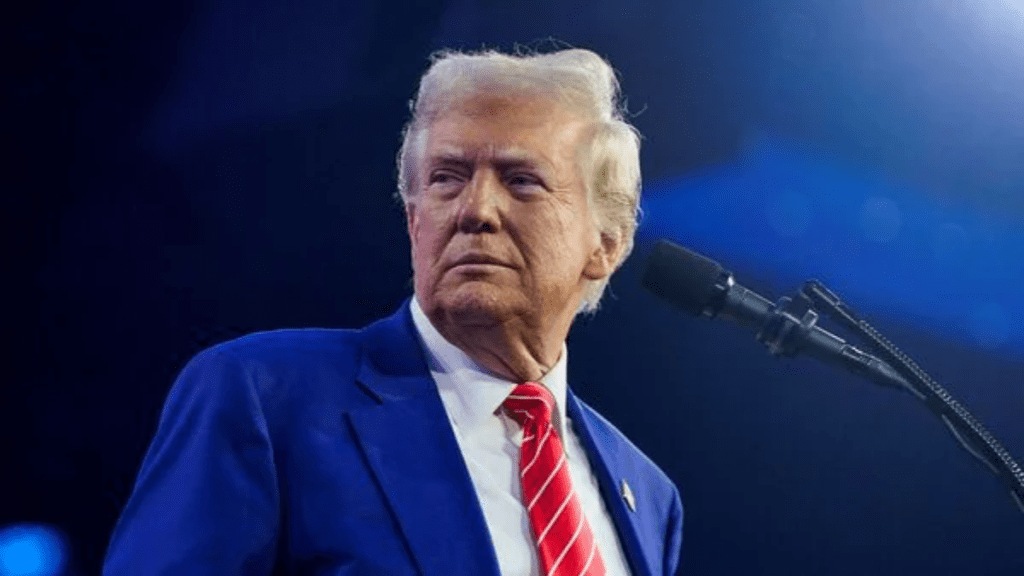In a high-stakes ruling that underscores a brewing constitutional clash, US District Judge Loren L AliKhan on Tuesday temporarily blocked a sweeping directive by President Donald Trump to freeze federal funding while conducting a broad ideological review. The decision, issued minutes before the funding halt was set to take effect, grants a reprieve to states, nonprofits, and local governments reliant on federal dollars for essential services, reports the Associated Press.
Funding Freeze and Its Immediate Fallout
The Trump administration’s plan sought to pause loans and grants across numerous federal programs to ensure alignment with the president’s recent executive orders. These orders target progressive initiatives such as diversity, equity, and inclusion (DEI) programs, as well as protections for transgender individuals and environmental policies. While administration officials claimed the pause was necessary for fiscal responsibility, the lack of clarity surrounding its implementation caused widespread panic.
Local governments, schools, and nonprofit organizations scrambled to interpret the vague guidance from the Office of Management and Budget (OMB). A memo issued by the OMB outlined the pause but failed to provide specifics on which programs would be impacted, leaving stakeholders like the Shawnee Mission School District in Kansas guessing about the freeze’s implications.
“This sort of came out of the blue,” said David Smith, a spokesperson for the school district. “We’re trying to figure it out based on zero information.”
Legal Pushback from Nonprofits and States
The temporary halt ordered by Judge AliKhan came in response to a lawsuit filed by nonprofit organizations, which argued that even a brief funding interruption could lead to layoffs and the closure of essential services. Jessica Morton, an attorney for the National Council of Nonprofits, said the funding freeze put tens of thousands of nonprofit members at risk.
Meanwhile, Democrats and attorneys general from 22 states and the District of Columbia quickly mobilised, filing lawsuits to block the Trump administration’s actions permanently. New York Attorney General Letitia James called the funding pause “reckless, dangerous, illegal, and unconstitutional.”
Democrats also raised constitutional concerns, pointing out that the president lacks unilateral authority to withhold money appropriated by Congress. “Trump’s actions would wreak havoc in red and blue communities everywhere,” said Sen. Patty Murray, the top Democrat on the Senate Appropriations Committee.
Confusion and Chaos Across the Nation
The ripple effects of the funding freeze were felt far and wide. Meals on Wheels, a federally funded program delivering food to the elderly, expressed concern about potentially being cut off. “The lack of clarity and uncertainty right now is creating chaos,” said spokesperson Jenny Young. “Seniors may panic not knowing where their next meals will come from.”
The National Science Foundation postponed grant review panels, while officials in Prichard, Alabama, feared delays in funding for critical infrastructure repairs to their leaking drinking water system. Republican leaders in Louisiana and other states sought clarification to ensure the financial stability of their budgets wasn’t jeopardised.
Trump Administration Defends the Freeze
The Trump administration maintained that the freeze was a necessary step to ensure taxpayer dollars aligned with the president’s priorities. White House press secretary Karoline Leavitt argued that the move reflected a commitment to curbing wasteful spending on initiatives she described as promoting “transgenderism and wokeness.”
Leavitt denied accusations that the funding freeze was a power grab to challenge Congress. “He’s just trying to ensure that the tax money going out the door in this very bankrupt city actually aligns with the will and the priorities of the American people,” she said.
Administration officials insisted that essential programs such as Medicare, Medicaid, Social Security, and food stamps would remain unaffected. However, a 51-page spreadsheet distributed to federal agencies revealed a comprehensive review of programs ranging from special education to pool safety, raising concerns about the freeze’s broad reach.
Constitutional and Political Implications
Experts believe the funding freeze reflects a broader effort by Trump to reshape the federal government in his second term. By leveraging the bureaucracy, Trump is pushing conservative priorities from within. Federal employees have reportedly been encouraged to report colleagues continuing DEI initiatives, signalling a new approach to enforcing the president’s agenda.
Paul Light, a professor emeritus of public service at New York University, noted the risks inherent in Trump’s strategy. “You can’t just hassle, hassle, hassle,” Light said. “You’ve got to deliver.”
The funding freeze highlights the growing tension between the executive branch and other levels of government over federal spending. While Judge AliKhan’s administrative stay offers temporary relief, the fight over the funding halt is far from over. Responses from federal agencies to Trump’s ideological review are due by February 7, and the pause could still take effect if upheld in court.
For now, the nation waits to see how this unprecedented clash over federal funding will unfold, with billions of dollars — and the livelihoods of countless Americans — hanging in the balance.

